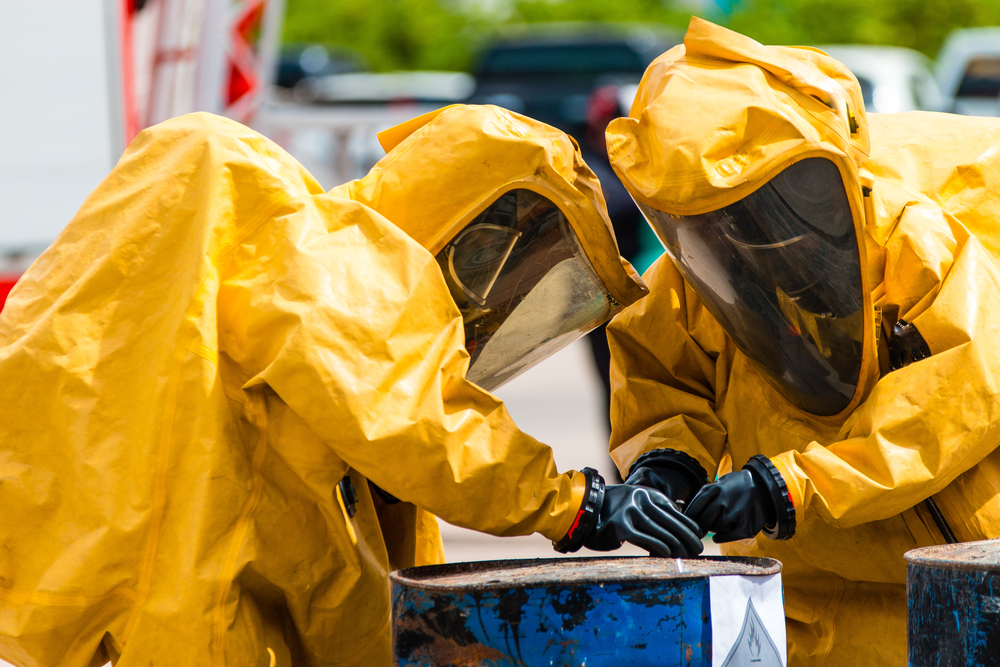
A coalition of national organizations representing public health, healthcare providers, biotechnology companies, and researchers this week urged congressional leaders to swiftly approve the Pandemic and All-Hazards Preparedness and Advancing Innovation (PAHPAI) Act of 2018 before Congress adjourns for the year.
The bipartisan reauthorization bill, H.R. 6378/S. 2852, would strengthen America’s defense, preparedness and response to chemical, biological, radiological or nuclear (CBRN) attacks, natural disasters and emerging infectious diseases. The U.S. House on Sept. 25 passed H.R. 6378 and sent it to the U.S. Senate, which has been reconciling the bill with its version, the same-named S. 2852.
The deadline to reauthorize the nation’s pandemic and all-hazards law was Sept. 30 and now time is running out to finish the job and get the update passed in the Senate, and then signed into law, said the 29 signatories of a Dec. 5 letter sent to Senate Majority Leader Mitch McConnell (R-KY) and Senate Minority Leader Charles Schumer (D-NY), as well as House Speaker Paul Ryan (R-WI) and House Minority Leader Nancy Pelosi (D-CA).
“We are particularly concerned that several authorities have already expired, including temporary reassignment of state and local personnel and the National Advisory Committee on Children and Disasters,” according to the groups, who noted that other authorities expire this month, including limited antitrust exemption and other provisions critical to contracting by the U.S. Department of Health and Human Services (HHS).
“We believe that time is of the essence in reauthorizing these important authorities,” wrote members of AABB (formerly known as American Association of Blood Banks); AFSCME; the Alliance for Biosecurity; the American Academy of Pediatrics; the American Association on Health and Disability; the American Hospital Association; American Public Health Association; American Society for Microbiology; America’s Blood Centers; the Association of American Medical Colleges; the Association of Maternal and Child Health Programs; the Association of Public Health Laboratories; the Association of State and Territorial Health Officials; Big Cities Health Coalition (BCHC); the Biotechnology Innovation Organization (BIO); California Life Sciences Association; the Chicago Department of Public Health; the Council of State and Territorial Epidemiologists; Healthcare Ready; Health Industry Distributors Association; Infectious Diseases Society of America; the International Safety Equipment Association; Johns Hopkins Center for Health Security; Los Angeles County Department of Public Health; March of Dimes; the National Association of County and City Health Officials; the New York City Department of Health and Mental Hygiene; the TB Alliance; and Trust for America’s Health.
The groups added that “it would be a setback for our national health security to delay reauthorization until 2019.”
Their letter comes after a Nov. 30 discussion hosted by the Alliance for Biosecurity in which U.S. Rep. Susan Brooks (R-IN), who sponsored H.R. 6378 in July, outlined how the legislation would enhance the national stockpile of vaccines, medical equipment and diagnostics; would fund training for more health care professionals to respond to potential pandemics; and would strengthen medical countermeasures.
Rep. Brooks told attendees that she and other members of the House worked tirelessly to approve a comprehensive piece of reauthorization legislation, and the congresswoman said she hopes “my colleagues in the Senate work swiftly to do the same.”
The industry groups seek the same action, according to their letter.
“The recent wildfires, hurricanes and multistate outbreaks have demonstrated that all sectors – public health, healthcare and private sector – play a critical role in saving lives during disasters and outbreaks,” the groups wrote, calling the proposed reauthorization “the backbone of our nation’s health security.”
The bill is particularly noteworthy, the organizations pointed out, because it “addresses some gaps we have seen in recent responses, such as the speed of funding for public health emergencies, development and deployment of medical countermeasures for significant threats and preparedness for children in disasters.”
H.R. 6378 and S. 2852 are under consideration in the U.S. Senate Health, Education, Labor and Pensions Committee.

